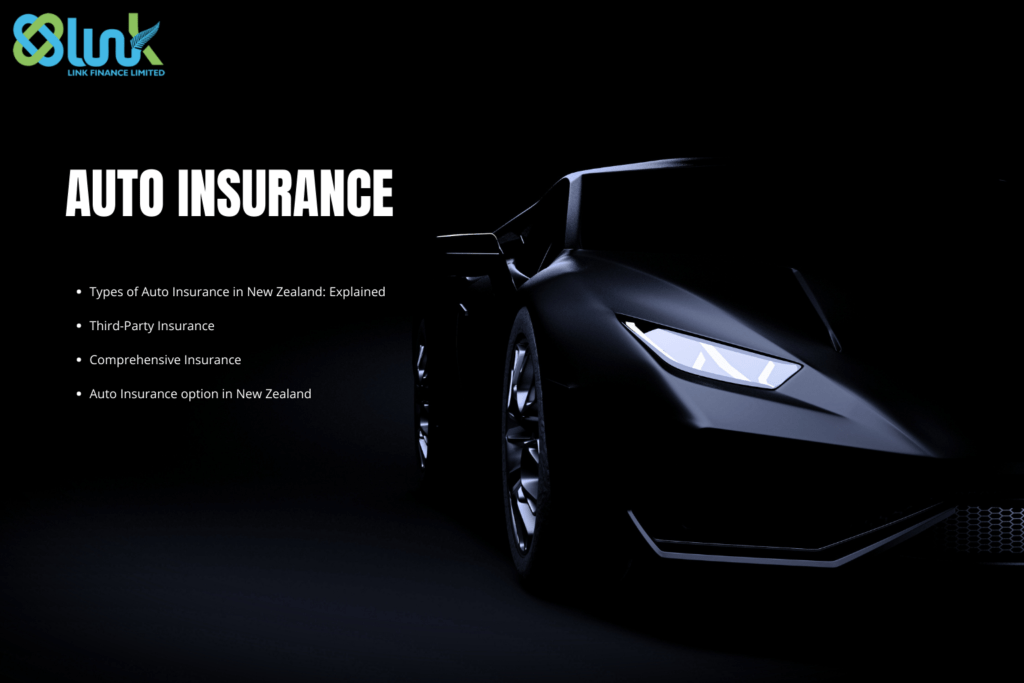Car insurance in New Zealand (NZ) is a form of financial protection for vehicle owners. It is a contract between the vehicle owner and an insurance company, where the owner pays a regular premium. In return, the insurance company agrees to cover certain damages or losses related to the insured vehicle.
Explanation:
Financial Protection: Car insurance offers financial protection to vehicle owners against potential expenses arising from accidents, theft, or other covered incidents. Instead of paying for damages out of pocket, policyholders can rely on the insurance company to cover eligible costs up to the specified policy limits.
Contractual Agreement: Car insurance is legally binding between the vehicle owner (policyholder) and the insurance company. The policyholder agrees to pay a certain amount, known as the premium, regularly (usually monthly or annually), and the insurance company commits to providing coverage as per the terms and conditions outlined in the policy.
Premium Payment: The premium is the cost of the insurance policy. It is determined based on various factors, such as the type of coverage chosen, the insured vehicle’s make and model, the driver’s age and driving history, and the vehicle’s primary use location.
Legal Requirement: car insurance in New Zealand is not legally mandatory for all vehicle owners. However, having at least third-party insurance is highly recommended. Third-party insurance covers damages you cause to other vehicles or property in the event of an accident where you are at fault.
It’s crucial to carefully read and understand the terms and conditions of the insurance policy before purchasing to know precisely what is covered and what is excluded. Car insurance provides peace of mind to vehicle owners and safeguards them from significant financial burdens in case of unexpected events on the road.
Types of Car Insurance in New Zealand
In New Zealand, car insurance comes in various types, each offering different levels of coverage and protection for vehicle owners. Let’s explore the main types of car insurance available in NZ:
- Third-Party Insurance: Third-party insurance covers damages and injuries caused by your vehicle to other people and their property. It does not provide any coverage for damages to your vehicle. It is the most basic and affordable form of car insurance and is primarily designed to protect others in an accident where you are at fault.
- Third-Party, Fire, and Theft Insurance: This type of insurance includes the coverage offered by third-party insurance and adds protection against fire damage and theft of your vehicle. If your car is stolen or damaged due to a fire, the insurance company will compensate you up to the policy limits.
- Comprehensive Insurance: Comprehensive car insurance provides the most extensive coverage available. It includes all the features of third-party, fire, and theft insurance and coverage for damages to your vehicle resulting from accidents, vandalism, natural disasters, and other incidents, regardless of who is at fault. It offers the most comprehensive protection for your car.
- Collision Insurance: Collision insurance is an optional add-on that covers the cost of repairs to your vehicle if it is damaged in a collision with another vehicle or object, regardless of fault. It is usually combined with third-party or comprehensive insurance to provide more specific coverage for collision-related damages.
- Uninsured/Underinsured Motorist Insurance: This optional coverage protects you if you are involved in an accident with a driver without insurance or insufficient insurance to cover the damages. It ensures you are not financially burdened if the at-fault driver cannot cover your losses.
- Gap Insurance: Gap insurance is an optional add-on designed to bridge the gap between the outstanding loan amount on your vehicle and its actual cash value in case of a total loss. If your car is declared a total loss after an accident, and its value is less than what you owe on your loan, gap insurance covers the difference.
It’s essential to consider your individual needs, the value of your vehicle, and your budget when choosing the right type of car insurance in New Zealand. While comprehensive insurance offers the most extensive protection, it might not be necessary for older vehicles with a lower value. Comparing quotes from different insurance providers can help you find the best coverage that suits your requirements and gives you peace of mind while driving.
Why is car insurance important in New Zealand?
Car insurance is important in New Zealand for several compelling reasons:
- Legal Requirement: car insurance in New Zealand is not legally mandatory for all vehicle owners. However, having at least third-party insurance is highly recommended.
- Financial Protection: Car insurance provides financial protection to vehicle owners by covering the costs of damages and repairs resulting from accidents, theft, vandalism, and other covered incidents. Repairing or replacing a vehicle can be costly, and having insurance can prevent you from bearing the full financial burden.
- Protection from Liability: Accidents can lead to injuries or even fatalities, resulting in significant medical expenses, legal fees, and compensation claims. Car insurance shields you from the financial liability associated with causing harm to others while driving.
- Peace of Mind: Knowing that you are covered by car insurance can provide peace of mind while driving. Whether you have basic third-party coverage or comprehensive insurance, you can drive confidently, knowing you have a safety net in case of unforeseen events.
- Protection against Uninsured Drivers: Some drivers might still operate without insurance despite the legal requirement. If you are involved in an accident with an uninsured driver, having uninsured/underinsured motorist coverage can ensure that you are still protected, and your damages are covered.
- Protection for Your Vehicle: Car insurance can cover the costs of repairs to your vehicle in case of accidents or other incidents, depending on the type of coverage you choose. This is especially important if you have a valuable or expensive vehicle that you want to protect.
- Incentive for Responsible Driving: Insurance companies often offer no-claims bonuses or discounts to policyholders who maintain a claim-free record. This incentivises responsible driving, as safer driving habits can reduce insurance premiums.
- Support during Emergencies: Car insurance can provide additional benefits like roadside assistance, towing services, and rental car coverage, which can be extremely helpful during emergencies or when your car is temporarily out of commission due to an accident.
How to compare car insurance in New Zealand:
Comparing car insurance in New Zealand is essential to find the best coverage that suits your needs and budget. Here’s a step-by-step guide on how to effectively compare car insurance policies:
- Assess Your Needs: Before starting your comparison, determine what type of coverage you require. Consider factors such as your vehicle’s age and value, driving habits, and any specific add-ons or benefits you might want, like roadside assistance or a rental car provision.
- Research Insurance Providers: Look for reputable insurance companies in New Zealand that offer car insurance. Consider well-known insurers and smaller, specialized providers. Read reviews and check their financial stability and customer service ratings.
- Get Multiple Quotes: Obtain quotes from different insurance providers. You can do this online through their websites or by contacting them directly. Make sure to provide accurate information about your vehicle and driving history to get precise quotes.
- Compare Coverage Options: Compare the coverage offered by each insurance policy. Check what is included in each type of policy (third-party, comprehensive, etc.) and what additional options are available. Look for the coverage that best aligns with your needs.
- Check Excess/Deductible Amounts: Excess or deductible is the amount you must pay before the insurance coverage kicks in. Compare the excess amounts for each policy and consider how it affects your premiums and potential out-of-pocket expenses in the event of a claim.
- Consider Premiums: Compare the premium costs for each policy. While it is essential to find affordable insurance, be cautious of overly cheap policies as they may offer limited coverage. Strive to strike a balance between cost and coverage.
- Explore Discounts: Inquire about any available discounts that could apply to you, such as no-claims bonuses, multi-policy discounts, or discounts for safe driving habits. These discounts can significantly impact the overall cost of your insurance.
- Read Policy Terms and Conditions: Carefully read the policy documents of the insurance plans you are considering. Understand the terms, exclusions, and limitations of each policy. Be aware of any hidden fees or charges.
- Compare Customer Support: Consider the quality of customer service each insurer offers. Look for reviews or ask for recommendations from friends or family to gauge the level of satisfaction with their customer support.
- Check Claim Process: Investigate the claims process for each insurer. Find out how easy it is to file a claim, and check if they have a 24/7 emergency helpline.
- Ask for Clarifications: If there’s anything you don’t understand or need further clarification on, don’t hesitate to contact the insurance providers and ask questions. A reputable company will be happy to assist you.
- Make an informed decision: After comparing all the aspects, select the car insurance policy that best meets your requirements and offers a good balance between coverage, premiums, and customer service.
Remember that car insurance is an essential investment, and comparing policies will ensure you find the most suitable coverage for your needs and protect yourself on the road.
Conclusion
In conclusion, car insurance is not legally mandatory for all drivers in New Zealand. Still, having at least third-party insurance to cover potential damages caused to other vehicles or property in case of an accident where you are at fault is highly recommended. While it is not compulsory, having car insurance, even with basic coverage, offers significant benefits in terms of financial protection and peace of mind while driving. It is crucial for drivers in New Zealand to understand the available coverage types and carefully review policy documents before purchasing insurance. Being well-informed about auto insurance options enables drivers to make informed decisions and ensures they are adequately prepared to protect themselves and others on the road. For more information, please contact (link finance NZ)
*Our website provides general information about our products and services to help you make choices regarding protecting the things in your car and business that matter and is not intended to be financial advice. For advice on product suitability, please get in touch with your financial adviser.






